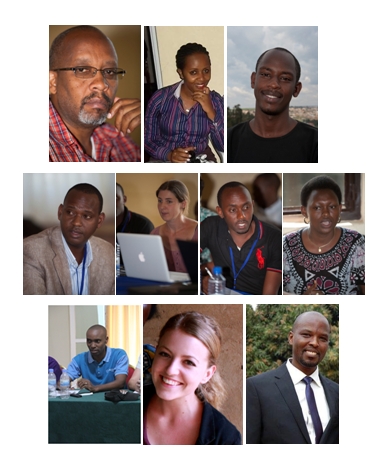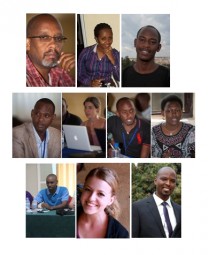
As a follow-up to my post last week on reflections of my five years in post as director of Survivors Fund (SURF), I would like to share some thoughts on what I hope to be the legacy of the work that SURF has undertaken over that time. There are three components of our work which I can highlight that have been a focus of our work which have yet to come to full fruition, but have demonstrated great potential:
Microfinance (and entrepreneurship)
Through the support of an array of funders, we have developed a transformative, scalable and sustainable model for improving the lives of survivors of the genocide. Initially in partnership with AVEGA and Solace Ministries, and more recently through additional work with AERG, we are demonstrating that it is possible to enable survivors to support themselves through the income that is generated through micro-businesses – though to do so requires training, follow-up, monitoring and evaluation. The major constraint in enabling more survivors to benefit from this support is not just a lack of resources, but the resources that are available are not being effectively utilised. Our hope is that our evidence-based model will be scaled-up in future.
Reparation
For survivors of the genocide in Rwanda, justice will never be truly served. Compromises have had to be made by survivors for the well-being of Rwanda, and for the sake of social cohesion that has proved critical in the rebuilding efforts post-genocide. However, that compromise should not be a sacrifice – and as such, survivors are continuing to call for reparation due to them to be honoured in some meaningful form. There are a number of mechanisms through which this can be made possible, but first and foremost it requires a commitment from the Government of Rwanda to enforce awards of compensation made to survivors through gacaca and other court proceedings, which to date still have yet to be honoured. Our hope is this issue will be a priority to be addressed around the twentieth anniversary in April 2014.
Monitoring and evaluation (M&E)
SURF’s office in Rwanda was originally established in 2003 as a monitoring and evaluation office. However, over the last ten years it has developed into providing more holistic support to our programmes and our partners, with an equally important focus on capacity-building and advocacy. Ten years on though M&E remains at the core of what we do – and enables all other components of our work. Collating data, analysing it, disseminating it and learning from it has enabled us to focus our efforts on the work where we can deliver the greatest value – and also has ensured that our partners have strengthened the projects under their management, and has served as an evidence base to advocate and secure further funding which makes our work possible. It will no doubt continue to remain at the core of our work in future too.

Top row (l to r): Gabo Wilson, Ariane Uwamahoro, Albert Gasake
Middle row (l to r): Alex Mugabo, Dr Jemma Hogwood, Raban Havugimana, Emilienne Kambibi
Bottom row (l to r): Vincent Nyauma, Kelsey Finnegan, Sam Munderere
Over the past five years, SURF has developed these three areas of work principally through the dedication, commitment and hard work of our remarkable team in Rwanda. They will be charged, under the leadership of our new Chief Executive, Francoise Lemagnen, to continue to progress this work – and to no doubt develop new areas of work too, as we continue to adapt and respond to the changing climate and context in Rwanda.
As the Talmud teaches us “You are not obligated to complete the work, but neither are you free to desist from it.” SURF is definitely proving that through its work over the past fifteen years, as documented in this short film:
As I complete my final day in post as director of SURF, I leave on that note, as I transition back into my former role as a consultant to SURF.
